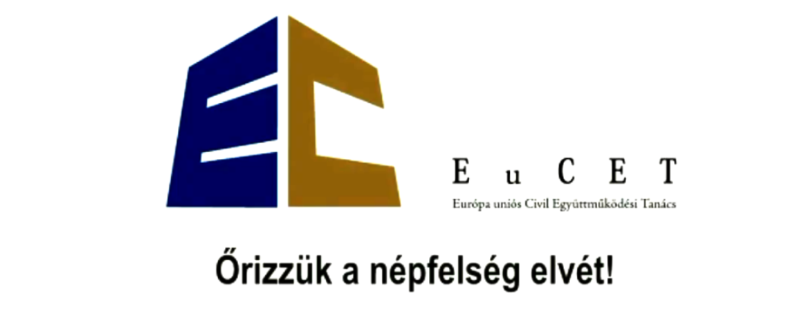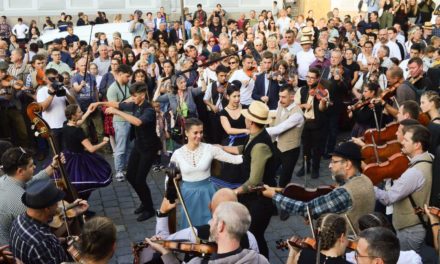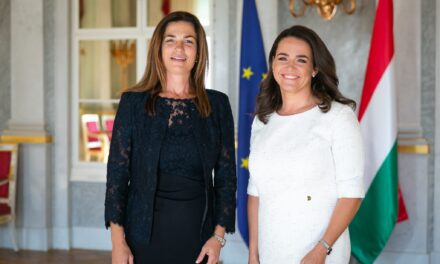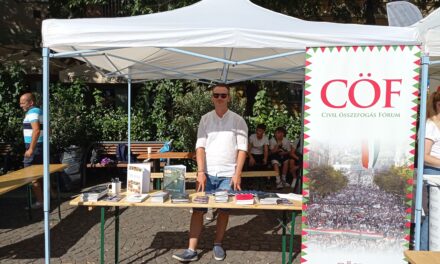A two-day conference was organized jointly by the Civil Solidarity Non-profit Foundation and the National Association of Workers' Councils, in which well-known citizens of 13 European countries participated. You could already read about the event on our portal, and we presented the introductory speech of László Csizmadia, the president of CÖF-CÖKA . The conference was about the future of Europe, at which it was decided to institutionalize the European Union Civil Cooperation Council (EuCET), for this purpose a five-member international body was chosen, and then the Final Declaration was made. Zoltán Lomnici Jr., CÖF-CÖKA spokesperson, was entrusted with the task of organizing the successful work.
The Closing Statement is described below.
Closing statement
On October 15-16, 2021, the European Union Council for Civil Cooperation (EuCET) and the organizations collaborating with it formed their position on the future of the European Union within the framework of the conference on the future of Europe. Among other things, they established:
The organizations cooperating with EuCET stand alongside a European community that is based on the cooperation (or confederation) of sovereign nation-states, takes into account the different historical traditions, culture, economic endowments and national interests of the individual member countries, and at the same time seeks the basis of our common European past and culture the widest cooperation opportunities. They are all committed to ever closer European cooperation serving the interests of the member countries, but they reject the centralizing efforts of the current European leadership and ideologies that question Europe's historical heritage, historical traditions, Christian-Jewish roots and values.
The participants want a strong Europe in which, for example, the general political positions of the forum of national heads of state and government, the European Council, cannot be overridden by lower-level council decisions, and where the European Parliament is expected to be involved in inter-institutional consultations on such decisions, and we also consider it important a step in the right direction - rethinking and strengthening the institution of the European citizens' initiative. All this is also because we believe in the principle of popular sovereignty, according to which the source and depository of all rights is the people as a whole, which directly or through its representatives exercises the rights related to state power - this is now the main basic element of all modern European constitutions. We consider it important to enforce the idea of national sovereignty, which in our view means the state independence of the nation states that make up the European Union, based on the principle of the sovereign equality of states, and their capacity to act in an international sense.
By strengthening the Erköcs pedestal, EuCET wants to reorient the Union to the original ideas of the founders and the large-scale politicians who shaped the community in the past decades. We believe that Helmut Kohl dreamed in Europe that the Commission and other EU institutions must not only keep in mind the specific provisions of the Treaties for EU legislative acts, but also the spirit of the Treaties during the preparation of individual decisions. And this presupposes the responsibility felt for the future of the coming generations, the prevention of harmful federalist and even super-federalist efforts and the representation of civil self-defense, the unity of individual and community civil will, and the protection of the nations of Europe.
To this end, it is reasonable to coordinate the cooperation of civil organizations and their most organized participants, the trade unions, to exchange the oppositional, pressure-exerting, (class warfare) role of interest associations in the formation of political will for a new era of joint policy-making and taking joint responsibility for the decisions made, with the goal of increasing the general public good, as opposed to with the neoliberal institution and legal order that serves global interests.
The current pandemic has also highlighted how vulnerable an economy that is too widely connected to international trade is. EuCET supports the support of local economies. According to his understanding, needs that can be rationally met with local resources should be met locally. This also helps to protect the environment, especially if combined with increasing the lifetime and repairability of products. The economics based on this must be developed.
EuCET stands for the protection of European borders and the end of illegal immigration. Accepting or rejecting migrants who arrive illegally, en masse and without control is the responsibility of individual nation states. At the same time, the participants support that the individual underdeveloped countries, especially in the catchment area of Europe, receive help so that they can employ their growing population locally and ensure their livelihoods.
EuCET stands for enhanced protection of the planet Earth, but considers the EU's current climate policy to be professionally unfounded and economically harmful. The energy needs of industrial societies cannot be met only with wind and solar power plants. The climate effect of carbon dioxide is debatable, but nuclear energy is a realistic alternative to replacing fossil energy sources.
In the field of European foreign policy, EuCET starts from the basic position that it respects the political structure of the traditions and customs of other countries, which are different from ours, and does not wish to interfere in them with some kind of "democracy export". He builds his relationship with them on mutual economic benefits.
Finally, the organizations cooperating with EuCET decide to cooperate at the European level in the scientific foundation and popularization of the ideas explained above, and in building relationships with like-minded people. In order to do this, a board, committee, is created to manage the joint work. A separate agreement will be drawn up on the board's membership and operating principles.
Budapest, October 16, 2021












